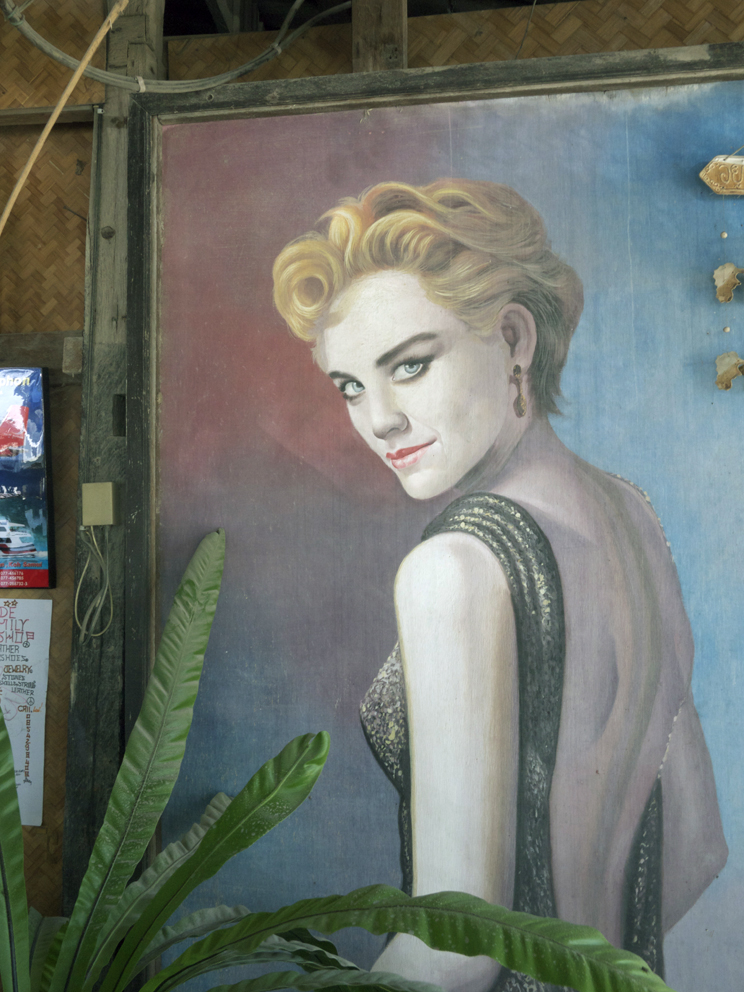

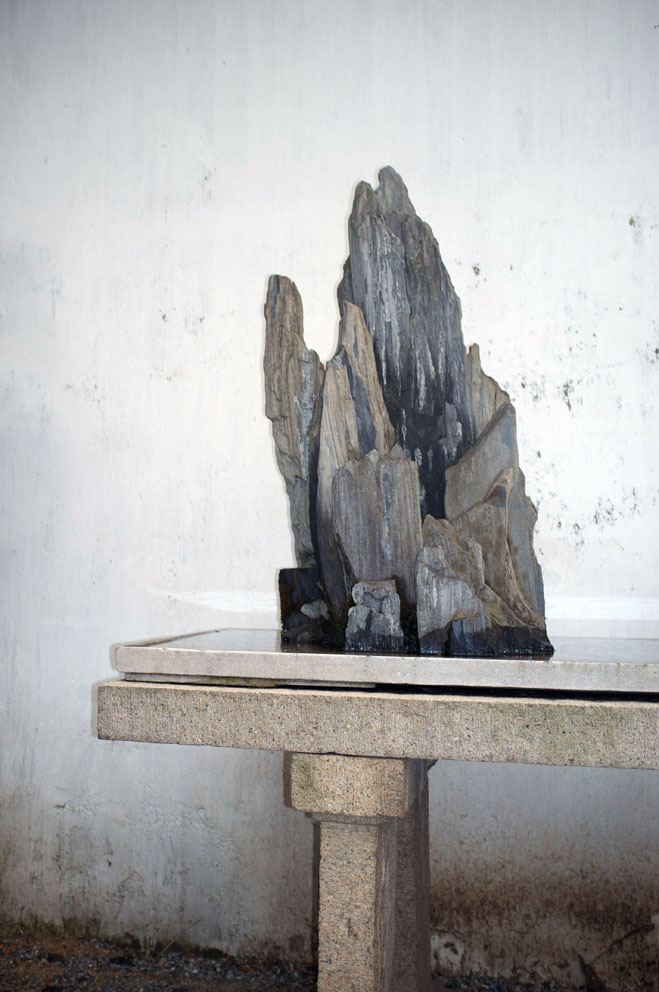

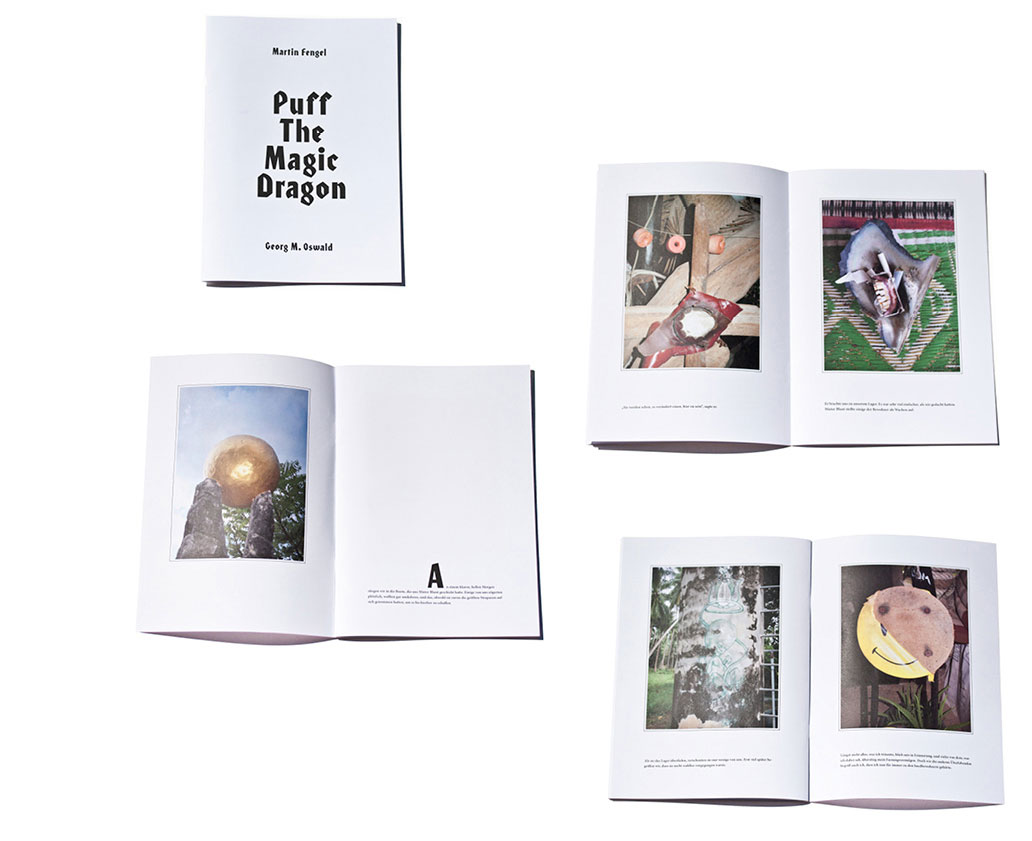
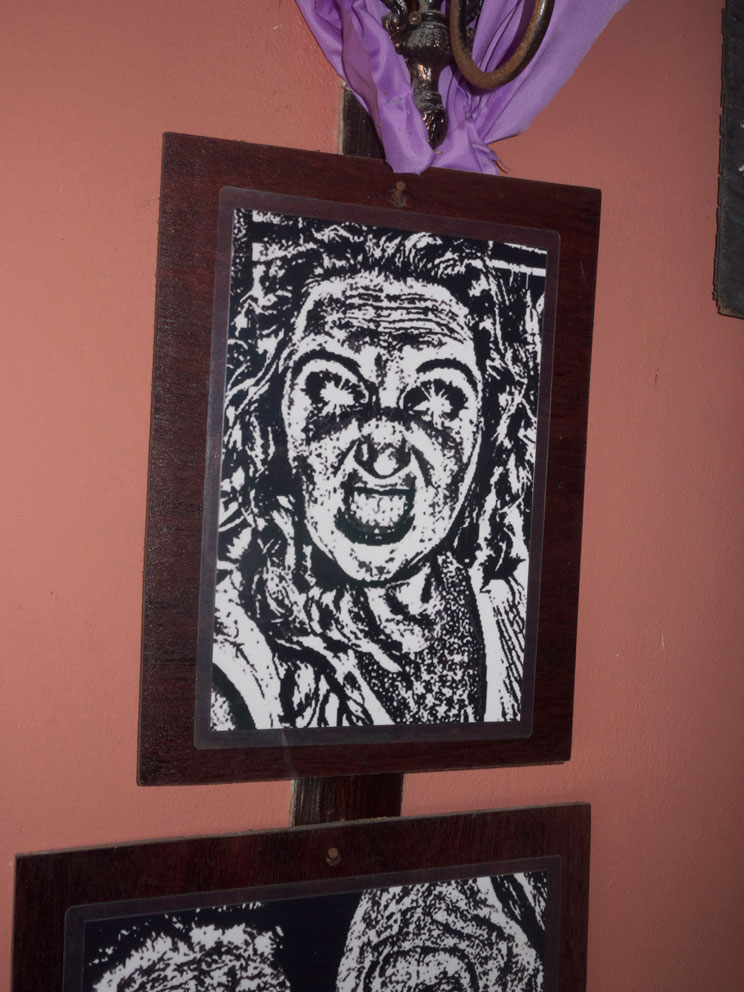

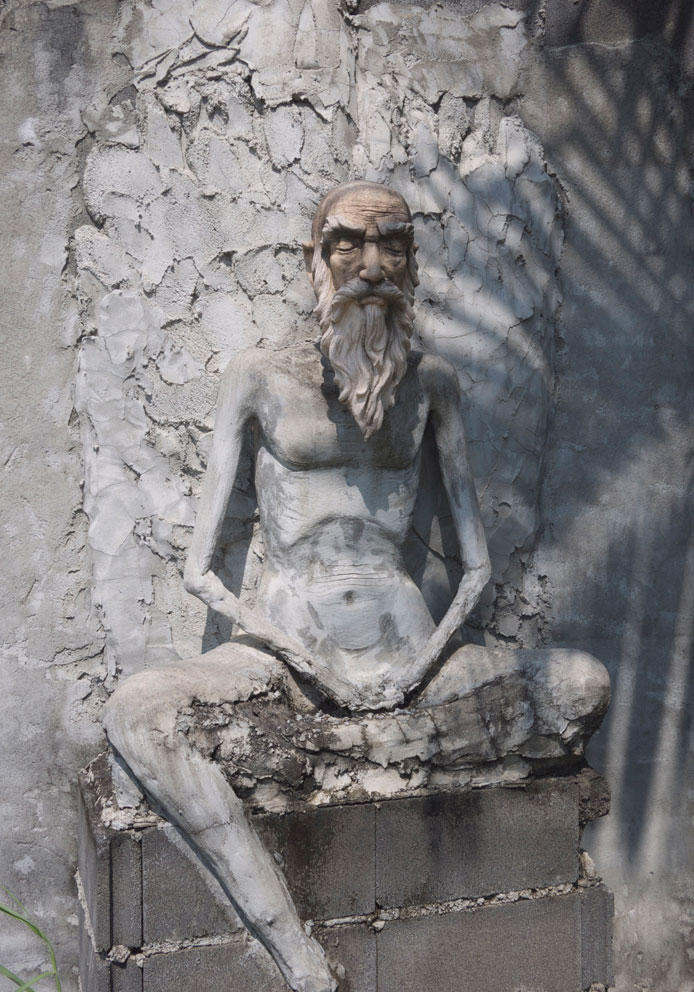
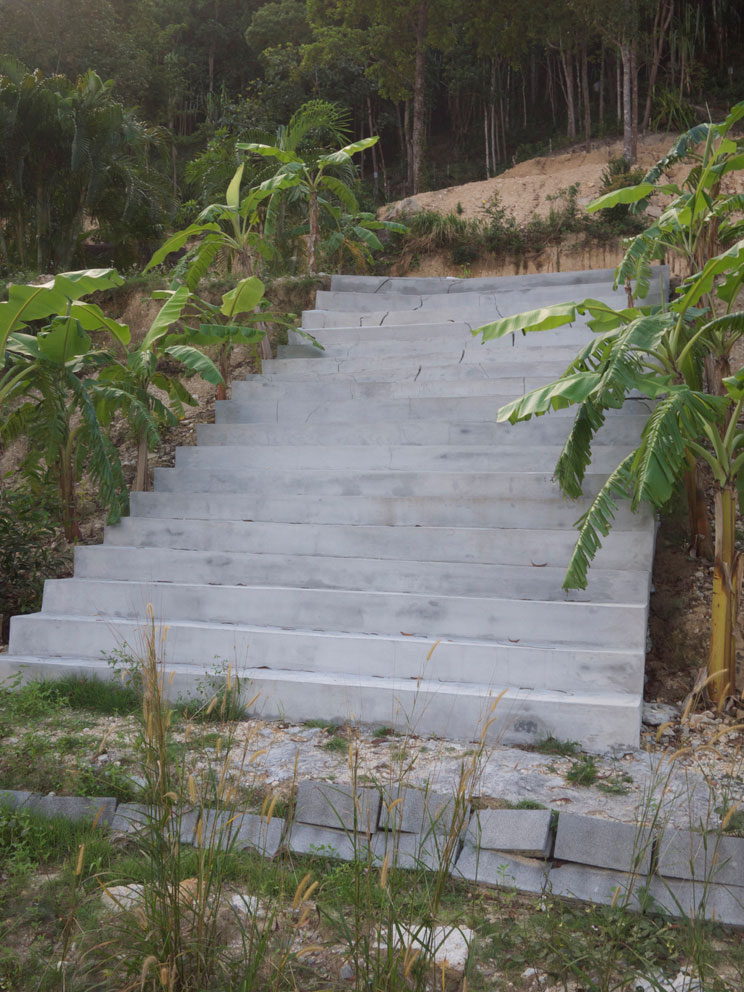

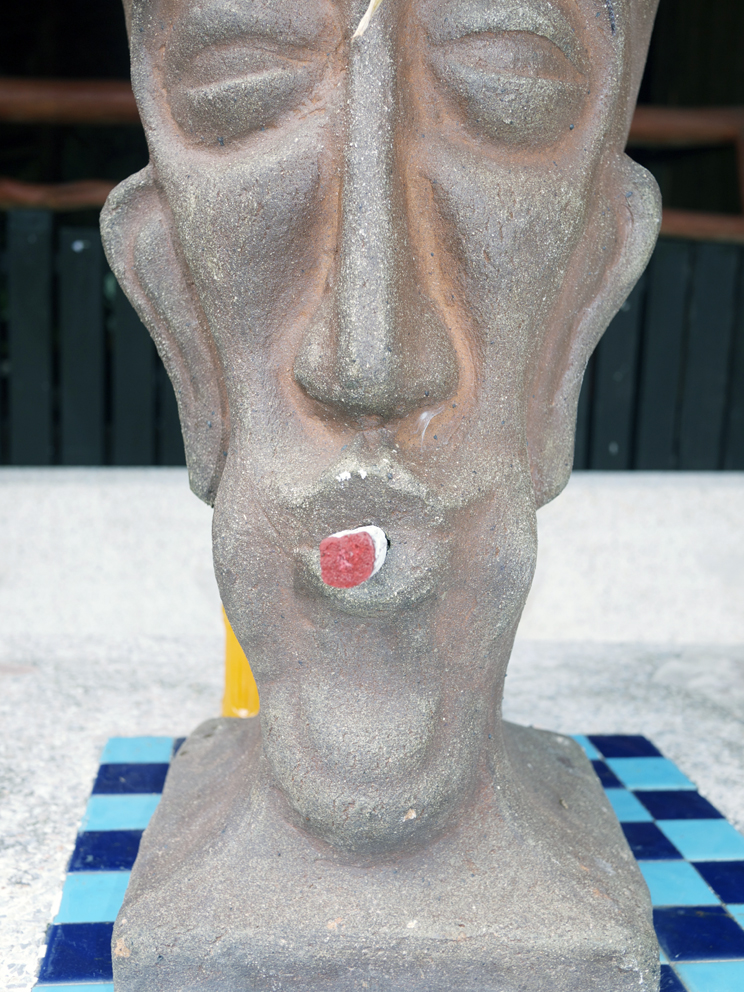
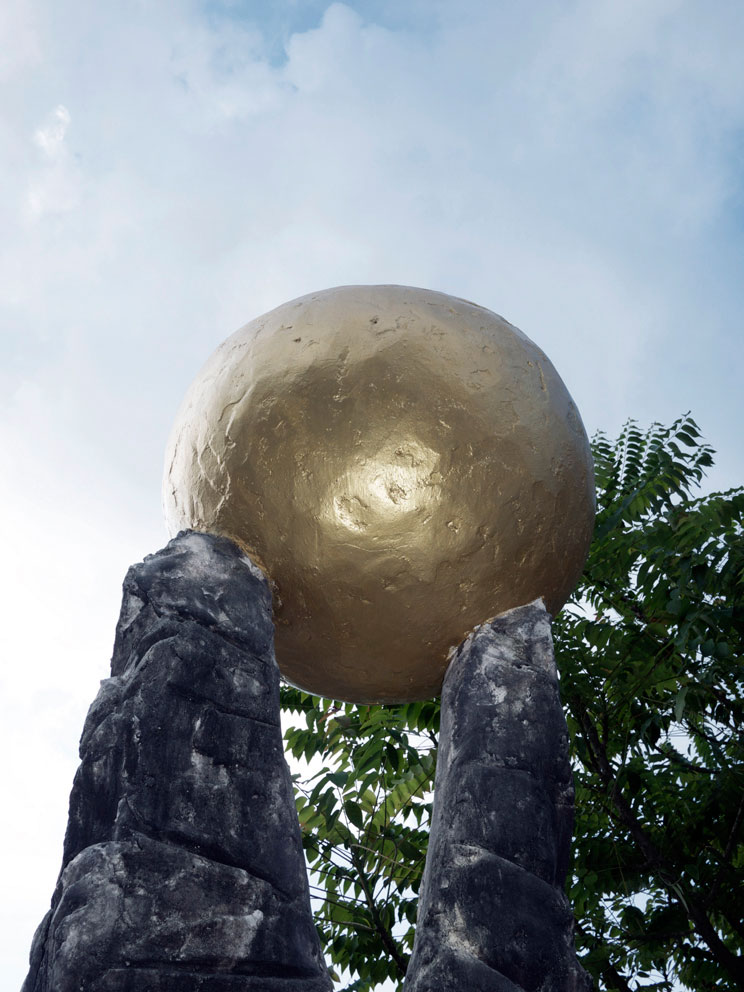 Puff the Magic Dragon | 2012 | INFO
Puff the Magic Dragon | 2012 | INFOPUFF THE MAGIC DRAGON
On a bright and clear morning we boarded the boats that Mr Blunt had sent for us. All of a sudden a few of us hesitated and even wanted to go back, even though we had endured great hardship to get this far.
The islanders seemed to be familiar with this behaviour. They grabbed us and pushed us gently but firmly on board.
Skilfully they guided the boats through the endless labyrinth of mangroves.
Whenever we spoke to them they smiled affably, but without answering. All we could do was keep our eyes on the small amount of luggage we had been permitted, and look around. Their lack of interest soon made us feel embarrassed and submissive.
We arrived at a hidden landing stage belonging to a village.
When we alighted we still thought we were part of a world composed of simple facts.
The villagers received us with silent curiosity but they were not unfriendly. A few of them led us up to the hill where Mr Blunt’s property stood.
Mr Blunt claimed to be British, but he may have been just pretending. After welcoming us to his estate he took us on a tour, presenting his property as if it were exquisitely beautiful.
“You’ll come to realise that being here changes people,” he said.
He took us to our camp. It was much more basic than we had been expecting. Mr Blunt deployed several villagers as sentries.
The following morning an adolescent boy led us through the forest to the ruins of an abandoned settlement near the village.
We pointed to objects and artefacts that caught our eye, including a bust reminiscent of Mr Blunt. Upon recognizing it we laughed and nodded, but the islanders accompanying us hardly reacted. Several of us could not help noticing how their faces clouded over.
A host of young children surged towards us as if they had been sent by someone. We could not understand what they were calling to us, but it sounded neither hostile nor friendly. From that point on the children did not leave our side.
As we made our way back they led us past a shabby, half-ruined building, not unlike an abandoned beach bar.
An emaciated and sparsely clothed old man emerged from the building. Perhaps he was the children’s teacher. He offered us pastries filled with meat. We refused, fearing that the food would make us ill, and then felt ashamed of our rudeness. From the look on their faces it was clear that it would be impossible to make amends.
We went on, back to our village, and from there up the small incline to our camp. More and more children gathered behind us, calling out and yelling. Some of them asked us where we were from, but our answers meant nothing to them. Once we had arrived at the top we turned around. They began chanting, as if on command, but we understood nothing.
“You violated one of their temples. You should not let that happen too often,” said Mr Blunt to us that evening.
Every day we went on trips. Mr Blunt told us the names of the locations: Dragon Hut, Golden Rock, Secret Beach, White West. The islanders never used these names.
During the daytime the islanders were unobtrusive, but they kept very much to themselves. At night they could often be heard talking excitedly all at once. They seemed to be involved in complex negotiations and feuds, the exact nature of which they never revealed. We suspected they had a plan and were arguing over the best way to carry it out, but this supposition owed more to our fear than to any real inkling.
They came from the surrounding settlements and gathered on the hill opposite every night.
We tried to work out what these meetings might be about. We heard drumming and howling, and then the same snarling noise that predators make when they sink their fangs into their prey.
“Sometimes I imagine the sentries might change sides one day,” said Mr Blunt. Then he laughed unnaturally loudly. He was a strange man.
“For centuries they were tortured and subjugated by people like us. How can their friendliness possibly be real,” said an attractive Canadian ethnologist, two days before we lost her.
“She was an idealist,” said Mr Blunt.
“What do you mean ‘was’?” we shrieked.
“You’re absolutely right, of course,” Mr Blunt corrected himself. “Why did I say ‘was’?”
We wanted to leave, but Mr Blunt ignored our requests. Even when we pleaded with the utmost urgency he did not respond. “There’s still a lot you haven’t seen yet,” he said.
Some of us began to smoke the ganja that the sentries offered us. We had been advised never to accept it. It had devastating effects; some people had such extreme laughing fits that they vomited, while others almost scared themselves to death. And yet it was these people who increasingly allied themselves with the sentries and demanded more and stronger ganja from them.
Some of the ganja smokers claimed to understand what the islanders were singing at their nocturnal gatherings, but how could they possibly know?
The attractive Canadian ethnologist was no longer alive. We despaired when we first found out she was dead. Then we too resorted to the ganja.
When they attacked the camp they spared only a few of us. It was only much later that we realised they had not acted randomly.
I didn’t remember a great deal of what I dreamed, and much of it was beyond my comprehension. Yet like the other survivors, I too understood that I would now be one of the islanders for ever.
 Puff the Magic Dragon | 2012 | INFO
Puff the Magic Dragon | 2012 | INFOPUFF THE MAGIC DRAGON
On a bright and clear morning we boarded the boats that Mr Blunt had sent for us. All of a sudden a few of us hesitated and even wanted to go back, even though we had endured great hardship to get this far.
The islanders seemed to be familiar with this behaviour. They grabbed us and pushed us gently but firmly on board.
Skilfully they guided the boats through the endless labyrinth of mangroves.
Whenever we spoke to them they smiled affably, but without answering. All we could do was keep our eyes on the small amount of luggage we had been permitted, and look around. Their lack of interest soon made us feel embarrassed and submissive.
We arrived at a hidden landing stage belonging to a village.
When we alighted we still thought we were part of a world composed of simple facts.
The villagers received us with silent curiosity but they were not unfriendly. A few of them led us up to the hill where Mr Blunt’s property stood.
Mr Blunt claimed to be British, but he may have been just pretending. After welcoming us to his estate he took us on a tour, presenting his property as if it were exquisitely beautiful.
“You’ll come to realise that being here changes people,” he said.
He took us to our camp. It was much more basic than we had been expecting. Mr Blunt deployed several villagers as sentries.
The following morning an adolescent boy led us through the forest to the ruins of an abandoned settlement near the village.
We pointed to objects and artefacts that caught our eye, including a bust reminiscent of Mr Blunt. Upon recognizing it we laughed and nodded, but the islanders accompanying us hardly reacted. Several of us could not help noticing how their faces clouded over.
A host of young children surged towards us as if they had been sent by someone. We could not understand what they were calling to us, but it sounded neither hostile nor friendly. From that point on the children did not leave our side.
As we made our way back they led us past a shabby, half-ruined building, not unlike an abandoned beach bar.
An emaciated and sparsely clothed old man emerged from the building. Perhaps he was the children’s teacher. He offered us pastries filled with meat. We refused, fearing that the food would make us ill, and then felt ashamed of our rudeness. From the look on their faces it was clear that it would be impossible to make amends.
We went on, back to our village, and from there up the small incline to our camp. More and more children gathered behind us, calling out and yelling. Some of them asked us where we were from, but our answers meant nothing to them. Once we had arrived at the top we turned around. They began chanting, as if on command, but we understood nothing.
“You violated one of their temples. You should not let that happen too often,” said Mr Blunt to us that evening.
Every day we went on trips. Mr Blunt told us the names of the locations: Dragon Hut, Golden Rock, Secret Beach, White West. The islanders never used these names.
During the daytime the islanders were unobtrusive, but they kept very much to themselves. At night they could often be heard talking excitedly all at once. They seemed to be involved in complex negotiations and feuds, the exact nature of which they never revealed. We suspected they had a plan and were arguing over the best way to carry it out, but this supposition owed more to our fear than to any real inkling.
They came from the surrounding settlements and gathered on the hill opposite every night.
We tried to work out what these meetings might be about. We heard drumming and howling, and then the same snarling noise that predators make when they sink their fangs into their prey.
“Sometimes I imagine the sentries might change sides one day,” said Mr Blunt. Then he laughed unnaturally loudly. He was a strange man.
“For centuries they were tortured and subjugated by people like us. How can their friendliness possibly be real,” said an attractive Canadian ethnologist, two days before we lost her.
“She was an idealist,” said Mr Blunt.
“What do you mean ‘was’?” we shrieked.
“You’re absolutely right, of course,” Mr Blunt corrected himself. “Why did I say ‘was’?”
We wanted to leave, but Mr Blunt ignored our requests. Even when we pleaded with the utmost urgency he did not respond. “There’s still a lot you haven’t seen yet,” he said.
Some of us began to smoke the ganja that the sentries offered us. We had been advised never to accept it. It had devastating effects; some people had such extreme laughing fits that they vomited, while others almost scared themselves to death. And yet it was these people who increasingly allied themselves with the sentries and demanded more and stronger ganja from them.
Some of the ganja smokers claimed to understand what the islanders were singing at their nocturnal gatherings, but how could they possibly know?
The attractive Canadian ethnologist was no longer alive. We despaired when we first found out she was dead. Then we too resorted to the ganja.
When they attacked the camp they spared only a few of us. It was only much later that we realised they had not acted randomly.
I didn’t remember a great deal of what I dreamed, and much of it was beyond my comprehension. Yet like the other survivors, I too understood that I would now be one of the islanders for ever.









